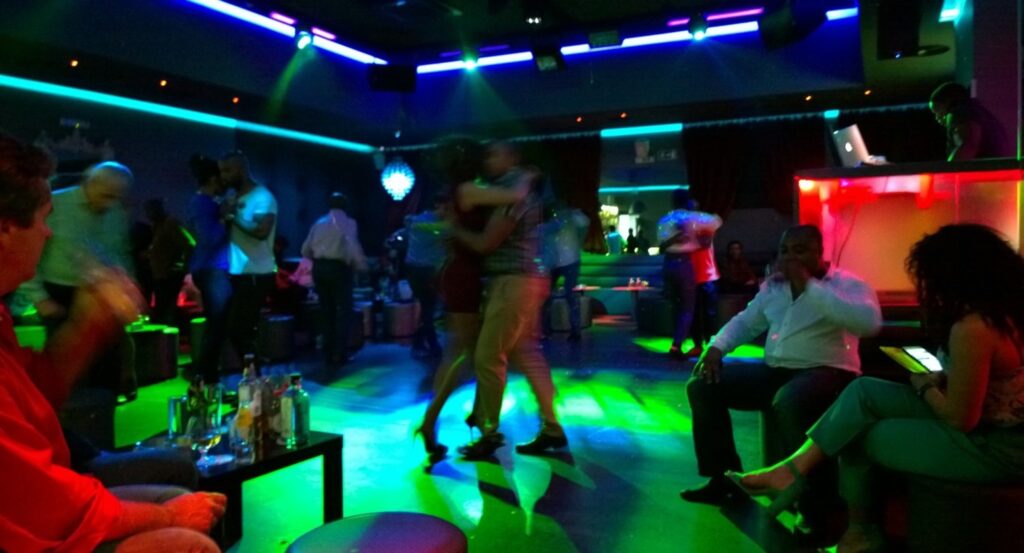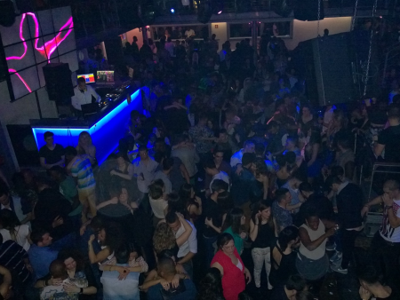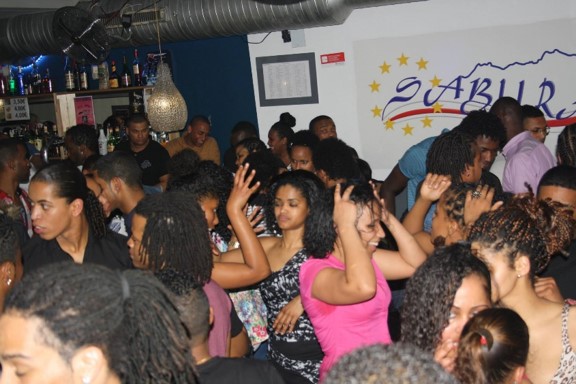Focus:
Between 2012 and 2015 Dr. Livia Sedano Jiménez carried out fieldwork in kizomba dancing contexts in Spain and Portugal: mainly, participant observation in African discos, kizomba dance schools and kizomba international festivals. During the first year of fieldwork, she followed the weekly circuit of kizomba aficionados in Madrid: Ramdall disco every Tuesday, La Sal every Wednesday, But every Thursday, Tropical House every Friday and Bisú Lounge Club every Sunday. She took kizomba lessons and followed the yearly ritual cycle of festivals in Spain, which involved attending the Criola Beach Festival in Barcelona, BK (Bachata and Kizomba) Festival in Benidorm, Feeling, Sensual Dance and Open Kizomba festivals in Madrid, as well as congresses in Pamplona, Cullera and Seville. During the second year in Lisbon, she visited the following clubs: Mwangolé every Monday, Sabura every Tuesday, Barrio Latino every Thursday, River Party or B.leza on Fridays and Saturdays, and Kora Club-Sussussú every Sunday. In order to gain a wider perspective of the field, she also visited on a less regular basis other clubs such as Ondeando, The Dock´s, O Pensador or Sarabanda. In what respects to festivals, she attended Africa Dançar and Keta in Lisbon. She did participant observation every afternoon in Jazzy Dance School, taking kizomba and semba lessons with Petchú, Dasmara Dos Santos and Iolanda Rangel, kizomba with Nuno Furtado, kuduro with Blaya and “traditional African dances” with Petchú and Vanessa. In order to gain a better knowledge of the dance school social world, she also attended regularly tango, salsa, bachata and ballroom workshops, took kizomba lessons with Hélio Santos at Braço de Prata, and attended the regular “European Dances” weekly venue held to analyse the circulation of dance aficionados through diverse groups. Moreover, she participated in cyclical workshops organized at B.leza and Barrio Latino clubs, taking kizomba lessons with Zé Barbosa, António Bandeira, Avelino Chantre, Lúcia Nogueira and other teachers. In addition, she attended marrabenta, ngalanga (from Mozambique) and pandza workshops held by Catarina Panaguana at the cultural association Centro Intercultura Cidade. This was complemented by in-depth interviews to DJs, dance teachers, dance students, disco owners and promotors behind kizomba events and public relations. In order to enrich this collection of materials, she searched and transcribed a total of 109 public interviews with kizomba artists and teachers working in diverse countries available from diverse websites, the radio (mainly RTP Africa, a Portuguese channel focused on the PALOPs (PALOPs is an acronym in Portuguese that stands for African countries having Portuguese as official language) and their presence in Portugal) and television (mainly TPA, the Angolan public television channel).
Aims:
Livia´s postdoctoral research project “Dancing ethnicities in a transnational world” contained the general objective of exploring the diverse ways in which ethnicity is constructed out of social dance contexts. Within this objective, the pleasurable encounters at the disco proved a privileged scenario where postcolonial conflicts between people racialized as “black” and “white” expressed through music and dance discourses. Emotions difficult to be verbalized related to war trauma, colonial nostalgy, fear from and attraction towards “the other” or anger from suffering everyday subtle racism are danced every night and find some liberation to the rhythm of music.



You can find more about the research of Livia Sedano Jiménez here
Readings:
Sedano Jiménez, Livia
2020 – Recuperative Dances: Reconnecting Through Kizomba in a Crisis Context, In Francisco Martínez (ed.) Politics of Recuperation. Repair and Recovery in post-Crisis Portugal. London: Bloomsbury: 181-206.
